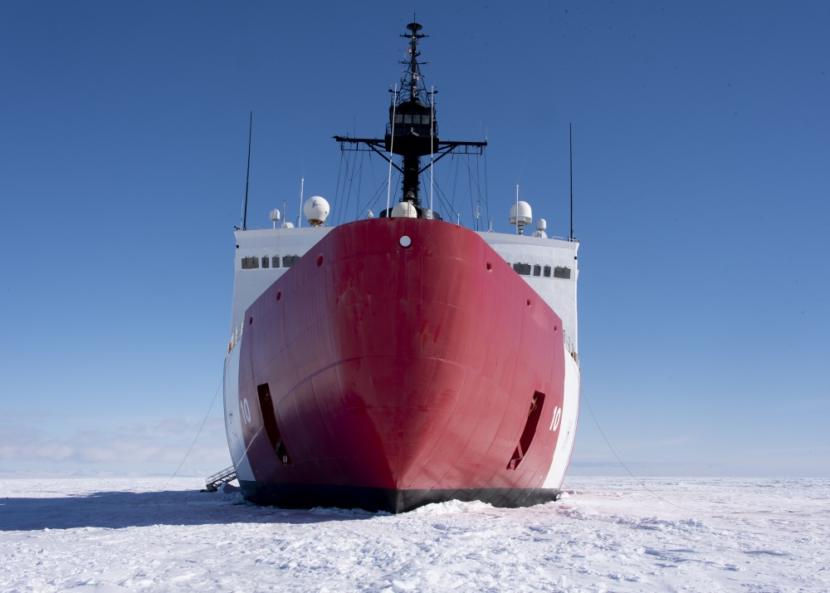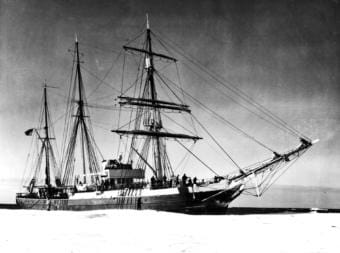
An Alaska state representative wants the federal government to name one of its new polar icebreakers the Polar Bear.
Chris Tuck, an Anchorage Democrat, introduced a formal resolution Monday calling on U.S. Coast Guard to use the name, which would honor the historic Revenue Cutter Bear. That’s a renowned ship that served in both world wars and once spared hundreds of iced-in whalers from starvation when their vessels became marooned off Alaska’s northern coast.
One of the reasons Tuck knows the history is because he once claimed a picture of the original Bear when it was being removed from the Capitol’s legislators-only cafeteria.

“I have the thing hanging in my office all this time. So the Bear stares at me,” Tuck said. “So it was knowing that we were having some new icebreakers on the way that I thought, ‘You know what? What better way of honoring the Bear?’” he said.
The Coast Guard is building three new polar security cutters — their term for heavy icebreakers. In April, the federal government awarded a $750 million contract for the first one’s construction to a shipyard in Mississippi.
The Coast Guard’s current icebreaking fleet consists of two vessels: a heavy icebreaker called the Polar Star and a medium icebreaker called the Healy. There’s a second heavy icebreaker called the Polar Sea, but both it and the Polar Star were built in the 1970s and are well beyond their expected lifespans — the Polar Sea broke down in 2010 and has since been used for spare parts.
The U.S. has begun playing catch-up to Arctic rivals that have far bigger icebreaking fleets. Russia, for example, has at least 46, several of which are nuclear powered. Finland has 10 and Canada has seven.
Correction: The Healy came online in the 1990s, not the 1970s, as this story initially said.
